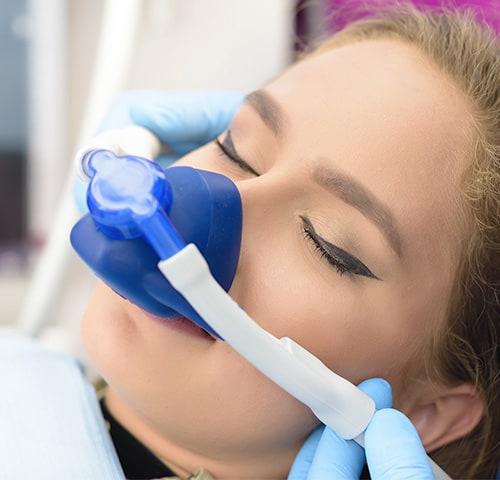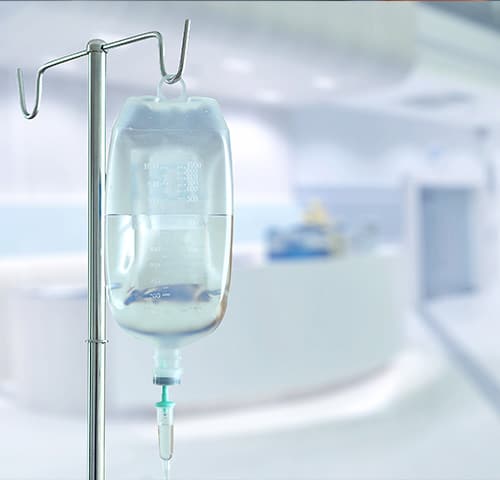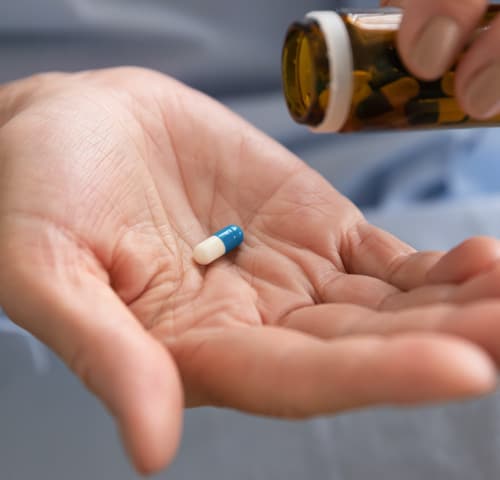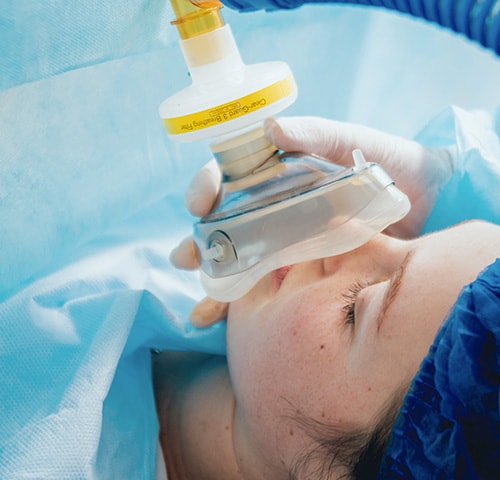Managing Dental Anxiety: The Benefits of Sedation Dentistry
Southaven Sedation Dentistry: Say Goodbye to Pain!
Nervous About Dental Visits? Overcome Needle and Dental Drill Fears!
- Overcome Dental Fear with Sedation Dentistry in Horn Lake, MS! Our customized sedation options are designed to ease your anxiety and make dental visits comfortable. From cleanings to implants, experience stress-free care today!
- Don’t Let Dental Anxiety Hold You Back! Discover Sedation Dentistry in Horn Lake, MS. Tailored sedation solutions make every procedure, from routine cleanings to complex implants, comfortable and worry-free.
- Conquer Your Dental Fears with Sedation Dentistry in Horn Lake, MS! Our personalized sedation options help you feel relaxed and comfortable during any dental procedure, so you can maintain your oral health with ease.
- Say Goodbye to Dental Anxiety with Sedation Dentistry in Horn Lake, MS! Whether it’s a simple cleaning or a complex implant, our sedation techniques ensure a calm and comfortable experience for every patient.
Experience the Comfort Benefits of Sedation Dentistry
- Safely and Effectively Reduces Dental Fear and Anxiety
- Patients Can Sleep Through Their Dental Procedures
- Treats Patients with Mental or Physical Health Challenges
- Addresses Behavioral Issues with Comfortable Sedation
- Streamlines Dental Procedures for Enhanced Dentist Efficiency
- Complete Dental Treatments with Fewer Visits Using Sedation
- Safely and Effectively Eases Dental Fear and Anxiety
- Patients Sleep Through Their Dental Treatments
- Sedation Dentistry for Patients with Mental or Physical Disabilities
- Manage Behavioral Issues with Sedation Dentistry
- Streamlines Dental Procedures for Easier Treatment
- Reduce the Number of Appointments with Sedation Dentistry
Types of Sedation for Comfortable Dental Treatments
There are four types of sedation techniques used in dentistry. They are –

Inhalation Sedation Dentistry
Your dentist would give you nitrous oxide (laughing gas) and oxygen mixture for inhalation through a mask device.

Intra Venous (IV) sedation
One of your veins would be accessed to administer a drug through IV.


General anesthesia
Your doctor would give you a cocktail of anesthetic drugs to induce sleep. operations, minimizing the number of initial appointments.
Ready to get started?
Reach us now to schedule your consultation
Frequently Asked Questions on Sedation Dentistry
What Is Sedation Dentistry? Key Insights
- Sedation Dentistry Reduces Dental Fear and Anxiety: Overcome Your Phobias and Enjoy Stress-Free Visits. From Basic Cleanings to Advanced Implants, Sedation Makes Dental Care Comfortable and Efficient.
- Overcome Dental Anxiety with Sedation: Reprogram Your Brain to View the Dentist as a Friendly Place. Sedation Makes Simple Cleanings and Complex Implants Stress-Free and Manageable in Fewer Appointments.
- Reduce Dental Fear with Sedation: Transform Your Perception of the Dentist’s Office. Sedation Allows You to Easily Handle Procedures from Routine Cleanings to Major Implants in Fewer Visits.
- Sedation Dentistry Eases Dental Anxiety: Learn to See the Dentist’s Office Differently. Whether It’s a Basic Cleaning or a Complex Implant, Sedation Ensures Comfortable, Efficient Care.
- Conquer Dental Fear with Sedation: Experience Less Anxiety and More Comfort During Visits. Sedation Helps Manage Everything from Routine Cleanings to Complex Procedures, Reducing the Need for Multiple Appointments.
- Sedation Dentistry: A Solution for Dental Anxiety and Fear. From Routine Cleanings to Complex Implants, Sedation Ensures Comfortable Treatment in Fewer Visits.
How Will My Dentist Safeguard My Health During the Dental Procedure?
- To ensure your safe response to sedation, Dr. Adatrow will closely monitor vital signs throughout the procedure. Our dental team will track key parameters, including:
Body Temperature: To prevent fluctuations.
Heart Rate, Rhythm, and Blood Pressure: For optimal blood circulation.
Carbon Dioxide (CO2) and Respiration Rate: To ensure normal breathing.
Oxygen (O2) Saturation: For proper oxygen levels. We will carefully document all monitoring data, medications administered, dosages, and timing."
- "Dr. Adatrow will continuously monitor your vital signs during sedation to ensure safety. Our team will observe:
Body Temperature: To maintain stable temperatures.
Heart Rate, Rhythm, and Blood Pressure: For effective blood circulation.
CO2 Levels and Respiration Rate: To confirm normal breathing.
Oxygen Saturation: For adequate oxygen supply. Comprehensive records will be kept of all monitoring data, drugs used, dosages, and administration times."
- "For your safety during sedation, Dr. Adatrow will monitor your vital signs carefully. Our dental team will check:
Body Temperature: To avoid temperature variations.
Heart Rate, Rhythm, and Blood Pressure: To ensure proper circulation.
Carbon Dioxide (CO2) and Respiration Rate: To verify normal breathing.
Oxygen (O2) Levels: To track oxygen flow. Detailed records of all monitored parameters, medications, dosages, and administration times will be maintained."
- "To ensure a safe sedation experience, Dr. Adatrow will monitor your vital signs throughout the procedure. Key monitoring includes:
Body Temperature: To prevent changes.
Heart Rate, Rhythm, and Blood Pressure: For adequate circulation.
CO2 and Respiration Rate: To ensure normal breathing.
Oxygen Saturation: To maintain proper oxygen levels. Our team will meticulously record all monitoring data, medication details, and dosages."
How to Prepare for a Sedation Dentistry Visit?
- Preparation for Sedation Varies by Type: Minimal Steps for Nitrous Oxide, and Possible Sedative Pills for Oral and IV Sedation. We Will Provide Pre-Procedure Instructions to Follow.
- Sedation Preparation Depends on Type: Simple Steps for Nitrous Oxide, and Sedative Pills for Oral and IV Sedation. Expect Detailed Pre-Treatment Instructions from Our Office.
- Different Sedation Types Require Different Prep: Minimal Measures for Nitrous Oxide, Possible Sedative Pills for Oral and IV Sedation. Our Office Will Provide Specific Pre-Procedure Instructions.
How Safe Is Sedation in Dental Procedures?
- Dr. Adatrow is a seasoned expert in administering sedation. With proper adherence to instructions, side effects are rare. Common side effects include memory loss of the procedure, dry mouth, and hiccups. Provide your detailed medical history and medications for optimal sedation care.
- Dr. Adatrow, an experienced sedation specialist, ensures minimal side effects when instructions are followed. Common issues include procedural memory loss, dry mouth, and hiccups. Share your full medical history and current medications with the doctor for best results.
Sedation Recovery Time: How Long Will It Take?
- Recovery Time Varies by Individual and Sedation Type: Nitrous Oxide Offers Immediate Recovery, While Oral and IV Sedation Require Post-Appointment Healing. Avoid Driving or Heavy Machinery for 24 Hours, Rest, and Hydrate Well. Follow Post-Treatment Instructions Provided by Your Dental Office. Most Patients Report Minimal to No Pain the Day After.
- Sedation Recovery Time Depends on Individual and Sedation Type: Nitrous Oxide Provides Immediate Recovery; Oral and IV Sedation Require Recovery After the Appointment. Refrain from Driving or Operating Heavy Machinery for 24 Hours. Rest and Stay Hydrated for Faster Recovery. Expect Minimal to No Pain the Following Day. Your Dental Office Will Supply Post-Treatment Care Instructions.
Eligibility Criteria for Sedation Dentistry: Who Can Benefit?
Here are some keyword-focused alternatives:
"Sedation Dentistry is Suitable for Those Anxious About Dental Visits. It Helps Calm Patients with:
- Gag Reflex Issues
- Dental Anxiety or Fear
- Low Pain Tolerance
- Need for Complex or Multiple Procedures
- Difficulty Staying Still in the Chair
- Mental or Physical Health Challenges
- Jaw Problems Affecting Mouth Opening
- Sensitive Teeth
- Children"
- Individuals with Dental Anxiety - Patients with Gagging Issues Those with Low Pain Thresholds People Needing Extensive or Multiple Procedures Patients Who Cannot Remain Still Individuals with Mental or Physical Challenges Those with Jaw Issues Affecting Mouth Opening Patients with Highly Sensitive Teeth Children"
Is Sedation Dentisty Safe for Children?
- Children with Dental Fear or Refusal to Cooperate May Benefit from Sedation Dentistry. Nitrous Oxide is Safe for Most Children and Commonly Used for Young Patients. Oral Sedation is Also an Option with Proper Dosage. Ensure Your Dentist is Fully Trained and Experienced in Sedation Techniques.
- Sedation Dentistry Can Help Children with Severe Dental Anxiety or Uncooperative Behavior. Nitrous Oxide is Widely Safe and Used for Pediatric Patients. Properly Administered Oral Sedation is Another Option. Always Choose Dentists Skilled in Sedation Methods.


